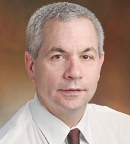
“The timing of the CCDL is impeccable, as we are now at a crossroads where the generation of massive data sets is common, but their impact on children with cancer not fully realized due to the fragmentation of our research efforts.”— John Maris, MD
Tweet this quote
ALEX’S LEMONADE STAND FOUNDATION (ALSF) has announced the opening of the first-of-its-kind Childhood Cancer Data Lab (CCDL) with the mission of accelerating cures. ALSF first announced the CCDL at the National Cancer Moonshot Summit in Washington, DC, hosted by former Vice President Joe Biden and Dr. Jill Biden in June 2016. The CCDL will integrate data to promote childhood cancer research.
A Digital Initiative
THE CCDL WAS CREATED because of the need for a central location to collect, analyze, and share childhood cancer data from research conducted around the world. The CCDL is a digital initiative for both collecting and disseminating data to researchers and the public to accelerate research toward cures.
Directing the CCDL Lab is Casey Greene, PhD, Assistant Professor of Pharmacology at the University of Pennsylvania. Dr. Greene will lead a team of software developers and data scientists who will focus on developing software that is not only useful but usable by childhood cancer researchers. The CCDL will harmonize more than 1 million public genome-wide assays (about $1 billion of data in the hands of every researcher) and share the set. Dr. Greene and his team will apply machine learning methods to the data to identify biologic commonalities among the samples. Users will be able to access CCDL-built software to explore results and compare their data against other users’ data.
‘Unique Effort’
“THE CCDL IS a unique effort to build the capacity for data-intensive research, not across an institution, but across a field. I am excited that we have the opportunity to harness data that were generated, shared, and then often forgotten for the fight against childhood cancer,” said Dr. Greene. “If we succeed, childhood cancer researchers will be able to rapidly connect their own findings to everyone else’s, not only via the results that they write about in their papers, but by the patterns that exist in their data. We hope that this will improve the pace and efficiency of discovery in the field, leading to treatments being identified much earlier than they otherwise would be.”
“The timing of the Childhood Cancer Data Lab is impeccable, as we are now at a crossroads where the generation of massive data sets is common, but their impact on children with cancer not fully realized due to the fragmentation of our research efforts,” explained John Maris, MD, of The Children’s Hospital of Philadelphia, an ALSF-funded researcher and member of the ALSF Scientific Advisory Board. “The ALSF CCDL will form a central hub for collaboration on big data, with a laser-like focus on delivering novel therapies to childhood cancer patients.” ■
For more information, visit CCDataLab.org or follow on Twitter @ CancerDataLab.

